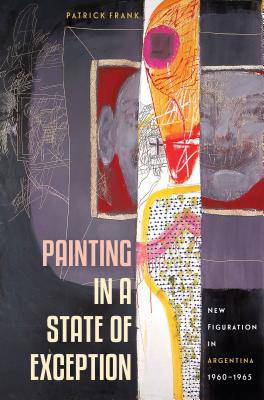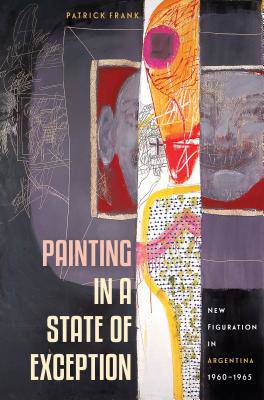
- Afhalen na 1 uur in een winkel met voorraad
- Gratis thuislevering in België
- Ruim aanbod met 7 miljoen producten
- Afhalen na 1 uur in een winkel met voorraad
- Gratis thuislevering in België
- Ruim aanbod met 7 miljoen producten
Painting in a State of Exception
New Figuration in Argentina, 1960-1965
Patrick FrankOmschrijving
Although it is one of Latin America's most significant postwar art movements, Nueva Figuración has long been overlooked in studies of modern art. In this first comprehensive examination of the movement, Patrick Frank explores the work of four artists at its heart--Jorge de la Vega, Luis Felipe Noé, Rómulo Macció, and Ernesto Deira--to demonstrate the importance of their work in the transnational development of modern art.
The artists were responding directly to a difficult and chaotic period characterized by civil strife, frequent changes of government, and economic shocks. They broke new ground in Latin American art, not only in their technique, but also in the way they engaged the social, political, and cultural climate in an Argentina still recovering from the Perón years. Building on postwar expressionism by working with unprecedented urgency and abandon, they combined spontaneous techniques of abstraction with collage elements and figural subjects. Their works exercised a creative freedom that broke taboos about the role of the artist in society. Frank combines analyses of each artist's paintings with discussions of their social, political, and artistic contexts. He reveals the works' connections to literature, popular culture, and film, broadening our understanding of modern art in the early 1960s.
Specificaties
Betrokkenen
- Auteur(s):
- Uitgeverij:
Inhoud
- Aantal bladzijden:
- 256
- Taal:
- Engels
Eigenschappen
- Productcode (EAN):
- 9780813062495
- Verschijningsdatum:
- 15/05/2018
- Uitvoering:
- Paperback
- Formaat:
- Trade paperback (VS)
- Afmetingen:
- 155 mm x 234 mm
- Gewicht:
- 385 g

Alleen bij Standaard Boekhandel
Beoordelingen
We publiceren alleen reviews die voldoen aan de voorwaarden voor reviews. Bekijk onze voorwaarden voor reviews.












